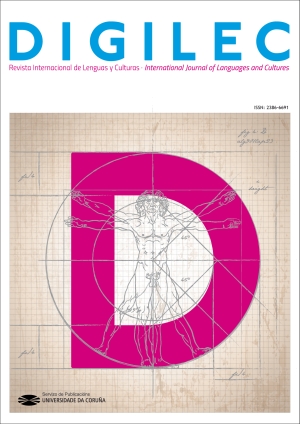Enriching education in Official Schools of Languages with Etwinning projects
Main Article Content
Abstract
Despite the tradition of Etwinning projects in Spain, those carried out in Official Schools of Languages are not as well known or numerous as those in other educational levels, like primary or secondary schools. However, they can greatly contribute to adult education in different aspects. After an introduction about what they consist of and how these projects interact, this article focuses on the Etwinning projects that are being developed at the EOI in A Coruña (Stories Time Capsule, AmbassadEUrs for promoting EU values, Miles of Meals, Nowhere feels like home: popular city culture), taking their European dimension as a reference, at a time in which cooperation policies between teachers, students and schools need to be affirmed. Our interest lies in Etwinning as a platform of collaborative learning, transnational work and a powerful tool to internationalize schools, share new methodologies and standardize teaching. We aim to insist on the different advantages of Etwinning for the educators and students in the European educational scenario in the midst of the pandemic and when the effects of Brexit are still to be assessed.
Keywords:
Downloads
Article Details
References
Epale Moderator. (2020). OER: The Role of Intergenerational Learning in Adult Education. EPALE – Electronic Platform for Adult Learning in Europe. European Comission. https://epale.ec.europa.eu/en/blog/oer-role-intergenerational-learning-adult-education
ETwinning. http://www.etwinning.net.
European Commission. (s.f.) Shared Challenges in Education and Training. https://ec.europa.eu/info/education/policy-educational-issues/shared-challenges-education-and-training_en
European Commission. (2019). Key Competences for Lifelong Learning. https://op.europa.eu/en/publication-detail/-/publication/297a33c8-a1f3-11e9-9d01-01aa75ed71a1/language-en
European Commission. (2019). Council Recommendation on a comprehensive approach to the teaching and learning of languages. https://data.consilium.europa.eu/doc/document/ST-8638-2019-INIT/es/pdf
Fuentes, N. (2020). El Plan Proxecta de la Consellería de Cultura, Educación y Universidad de Galicia incorpora este curso dos nuevas modalidades centradas en el Patrimonio cultural. Epale Newsletter. https://epale.ec.europa.eu/es/content/el-plan-proxecta-de-la-conselleria-de-cultura-educacion-y-universidad-de-galicia-incorpora
Gil Serra, A. F. y Roca-Piera, J. (2015). Movilidad virtual, reto del aprendizaje de la educación superior en la Europa 2020. Revista de Educación a Distancia, 26, 1-20. https://www.um.es/ead/red/26/gil_roca.pdf
Gozalo, L. et al. (2009). Nativos digitales, ciudadanos europeos: la acción Etwinning como ejemplo de la educación en colaboración a través de la red. Icono, 14 12, 123-41.
Miñarro López, L. M. (2019). Etwinning como programa de éxito en la escuela del siglo XXI. Alcance, limitaciones y oportunidades. Tesis doctoral. Universidad de Castilla-La-Mancha.
Oborune, K. (2013). Becoming more European after ERASMUS? The Impact of the Erasmus Programme on Political and Cultural Identity. Epiphany, 6 (1), 182-202.
Policy Statement- Adapting European Education Systems to Meet Society’s Challenges in an Ever Changing World. LLLPlatform Statement September 2017. http://lllplatform.eu/policy-areas/education-as-a-public-good/policy-statement-adapting-european-education-systems-meet-societys-challenges-ever-changing-world
Wikipedia. (s.f.). ETwinning. https://en.wikipedia.org/wiki/etwinning


